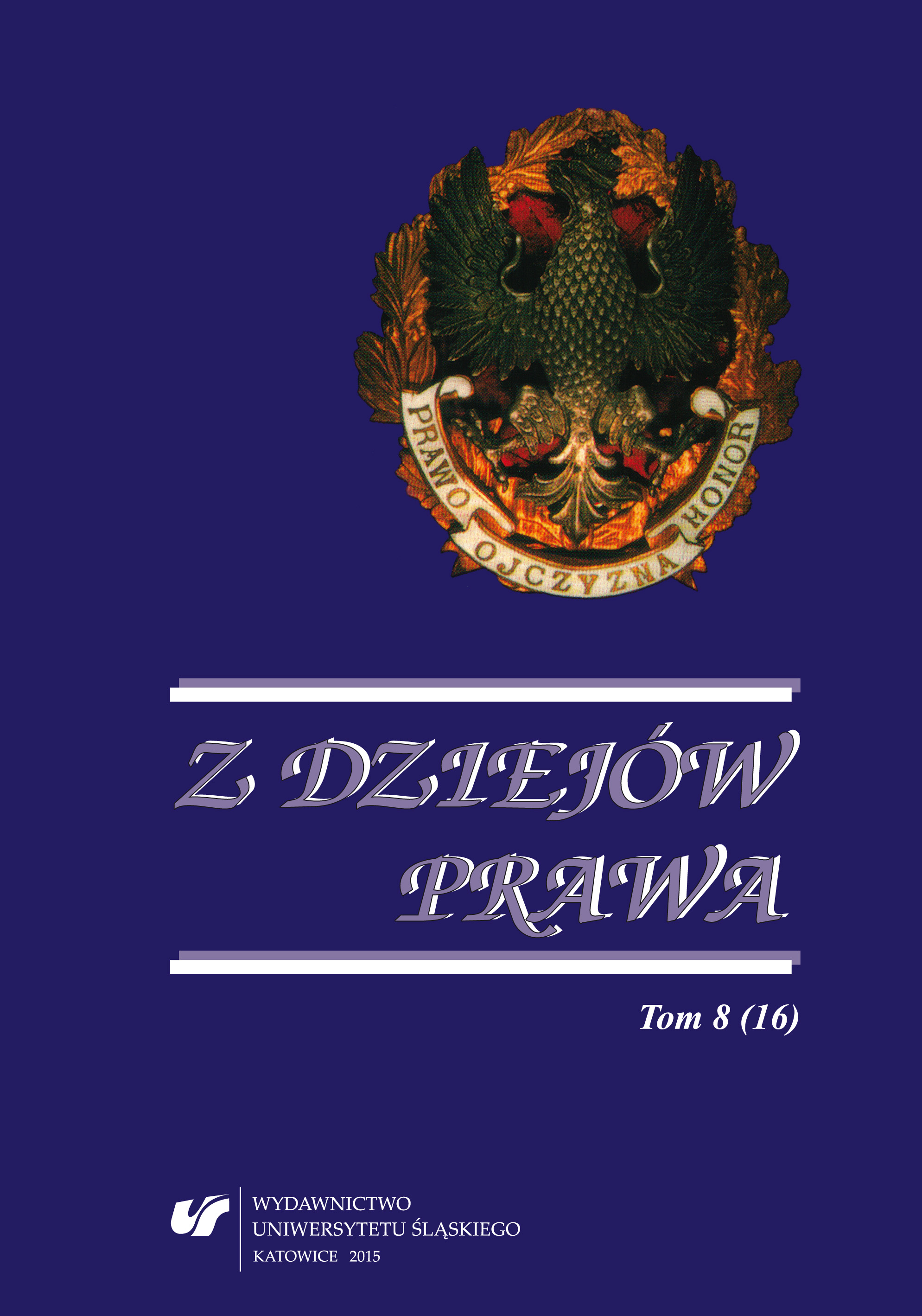Rozważania nad ewolucją pojęcia niezawisłości sędziowskiej w Polsce w latach 1944—1956
Reflections on the Evolution of the Concept of Independence of the Judiciary in 1944—1956
Author(s): Agnieszka WatołaSubject(s): History of Law
Published by: Wydawnictwo Uniwersytetu Śląskiego
Summary/Abstract: Drastic changes in the political system, connected with the rise of the Polish Workers’ Party as well as its satellite parties to power in post-war Poland, included the introduction of legislative solutions unknown to the legislative system as well as socio-economic relations characteristic of the Second Polish Republic. The new authorities were forced, out of necessity, to populate the new judicial system with judges who received their education and started working in their profession prior to the Second World War. Reactivation of the judicial system became, therefore, inextricably connected with the desire on the part of the new authorities to change the status of the judges. The rule regarding independence of the judiciary, which had been preserved, predominantly in name only, was subject to numerous restrictions aiming at discrediting the concept in its entirety. The new authorities maintained that without the ideological background to support it, the idea of independence of the judges would remain only an empty platitude, which had been nothing more than a “blindfold” for the judges in pre-war Poland. The judges, who remained part of the communist state apparatus, could not utilise the rule of independence of the judges in its traditional understanding. Moreover, the so-called judge’s conscience was to depart from the old traditions and conform to the reality of the power struggle in post-war Poland. Both the existence of the judge’s “class conscience” as well as ruling in accordance with the ideal of the “people’s rule of law” were to ensure that, in the opinion of the authorities, the judges would rule according to the will of the society. An independent judge was expected to rule in accordance with the interests of the ruling class, on the basis of the laws passed by the new authorities or according to the interpretation imposed by the authorities. Most importantly, in order to legitimise this understanding of the rule of independence of the judiciary, the judges were expected to rule according to the party line with enthusiasm and of their own volition, without the need for any form of exerting pressure. By creating this new interpretation of the concept of independence, the new authorities attempted to convince the judges as well as the society that an independent judge does not equal an apolitical one. The social and political “maturity” of the judicial staff was supposed to shape a new understanding of the notion of independence, which would be closely connected with state functions performed by the judiciary apparatus. Following the events of October 1956, the notion of independence of the judges was ultimately revised. As a result, the gradual degradation of the rule of independence of the judges was inhibited, which allowed lawyers to undertake a critique of those factors which negatively affected the discussed concept.
Journal: Z Dziejów Prawa
- Issue Year: 16/2015
- Issue No: 8
- Page Range: 109-125
- Page Count: 17
- Language: Polish

